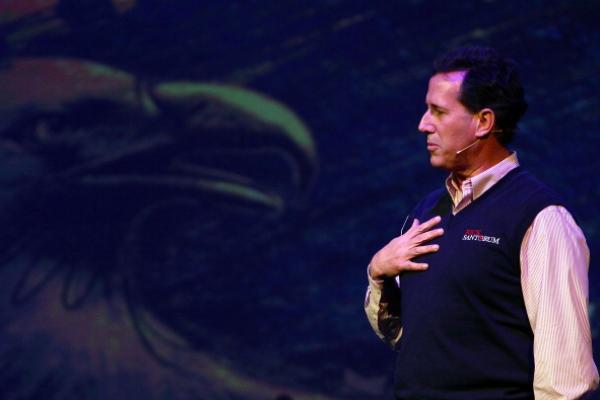With the Iowa caucus, the "First in the Nation" New Hampshire primary, and South Carolina's primary now behind us, the field of contenders for the Republican nomination continues to shrink. I've watched with great interest as the spectacle rolls on and a parade of non-Romney's (Non-Roms, going forward) rhythmically rise and fall. What is perhaps most interesting about the current frontrunners is the lack of an obvious evangelical candidate. For all the talk that we hear about the importance of the evangelical vote, one would suspect at least one of the potential nominees to be, you know, an evangelical.
But Michele Bachmann is out of the race after a promising start in the Iowa straw poll. Perry, whose entrance into the race as a more "electable" evangelical candidate may have contributed to Bachmann's quick downfall, all but eliminated himself in a number of now infamous debate flops. That leaves one not particularly religious Baptist, two Roman Catholics, and a Mormon. Rick Santorum, a Catholic, is perhaps the most socially conservative and thus the most evangelical-looking of the Non-Roms, but many evangelicals have a deep mistrust of Catholics, so it is doubtful that, as they did in Iowa, evangelicals will support him despite his Catholicism.
So what happened here? Back in 2004, when talking about the evangelical vote was all the rage, one could presume that evangelicals were a unified political front—that denominations or non-denominations within evangelicalism didn't matter, theological differences were moot, and ending abortion was enough to tie them all together. The problem with this presumption is that it was never true. There was never one kind of evangelical. If there was, self-identified evangelicals wouldn't have to add a definition or disclaimer every time they identify as such.
Read the Full Article

